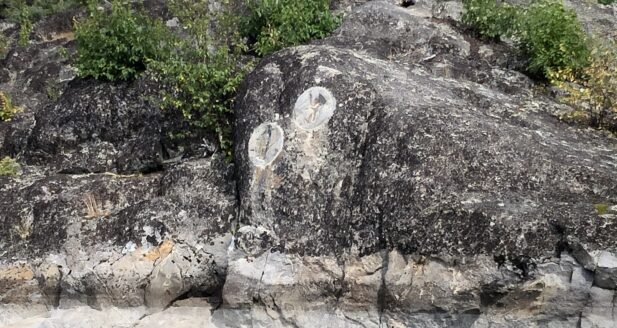By Michael Tyas I am going to say two crazy things, one more insane and maddening than the other, but they are both true: 1. Sweating is the cheapest way to stay cool in the summer. 2. Sweating can make you feel like a king or queen. If you are still reading, thank you. I will attempt to redeem myself by explaining how you can be the absolute most comfortable you have ever been while reducing your dependence on air conditioning, save tons of money and reconnect with your body. Have you ever noticed that the same temperature we might consider gorgeous outdoors is horrible indoors? For
By Ivan Penn and Clifford KraussPhotographs and Video by Tamir Kalifa July 11, 2021 The president and energy companies want new transmission lines to carry electricity from solar and wind farms. Some environmentalists and homeowners are pushing for smaller, more local systems. The nation is facing once in a generation choices about how energy ought to be delivered to homes, businesses and electric cars — decisions that could shape the course of climate change and determine how the United States copes with wildfires, heat waves and other extreme weather linked to global warming. On
Speech for Senator McCallum on Bill C-12, the “Canadian Net-Zero Emissions Accountability Act” from the Waniskātān Alliance of Hydro-Impacted Communities June, 2021 We welcome the opportunity to speak to this bill and to the impacts of hydro dams and climate change in Manitoba, particularly on Indigenous communities. Cree and Anishinabe peoples in Manitoba have been living with the impacts of hydro dams, diverted rivers, and impounded lakes in their homelands for over half a century and are all too familiar with the severe environmental damages they cause. They are also concerned about
This article was published on May 29, 2021 in the Winnipeg Free Press by Sarah Laurenuik https://www.winnipegfreepress.com/arts-and-life/life/greenpage/power-failure-future-shock-574517752.html The lights are on, but Manitoba Hydro isn't answering the door to offer clarity on greener power plans Flying above the coast of Hudson Bay west of Churchill, in the furthest northern reaches of Manitoba, you pass over two rivers that offer diametrically opposed narratives on how humans can choose to interact with the natural environment. Further to the west, the mighty Seal River flows unrestr
In May 2021, a series of billboards and transit shelter ads in Winnipeg address Sarah Guillemard, MLA for Fort Richmond, stating: “MLA Sarah Guillemard, Don’t let Hydro destroy South Indian Lake.” The locations are: Pembina Hwy and Killarney (ES, ES, photo free for use) and a digital billboard across from Polo Park .Almost 50,000 have signed a Change.org petition (change.org/HydroImpacted) calling on Sarah Guillemard, Minister of Conservation and Climate, to reject Manitoba Hydro's request for a final license for the Churchill River Diversion project.“This
By Shirley Ducharme and Doreen Spence Thursday, Apr. 15, 2021 The provincial government will soon decide whether to disregard our wishes and grant Manitoba Hydro a final licence for the Churchill River Diversion, a project that diverts up to 95 per cent of the flow of the second largest river in the province — at great cost to us. The final licensing decision should have been made 44 years ago when the water first went up, but that didn't happen. The history is complicated, but one thing is clear: the diversion was built without our consent, and against our wishes. Though Manitoban
By Will Braun in opinion piece for Winnipeg Free Press Despite its role as a critical economic and moral player, Manitoba Hydro is subject to scant public scrutiny. Hydro employs more than 5,000 Manitobans, carries over $20 billion in debt, keeps our lights on and is finishing the most costly project in Manitoba's history. In the moral ledger, Hydro's operations significantly and sometimes drastically affect roughly a dozen First Nations. It is a partner in what could be the two largest Indigenous business ventures ever in Manitoba. Environmentally, it severely affects the five larges
October 21, 2020 We fully stand with the Mi’kmaq Nation and the Fishermen asserting their Mi’kmaq Treaty Fishing Rights for a “Moderate Livelihood” as per the 1752 Peace and Friendship Treaty. We condemn the racist violent actions by the non-Indigenous commercial fishermen and allies, as well as the RCMP who have evidently failed to protect the Mikmaq people of continual colonial violence. These continuous acts of colonial violence in ways of racist threats, intimidation, harassment, damage to property and stolen and poisoned crates of lobsters, on top of the biased actions/inac
By Jessica Bound Hydroelectricity is currently considered to be the most important source of renewable energy in Canada, but when it’s generated by a mega-dam, it isn’t actually as “clean” or “green” a source of energy as the Canadian hydropower industry would like us to believe. Fortunately, alternatives to hydroelectricity do exist, and they are much more effective than you might think. With the right technology and equipment, renewable resources like wind and sunlight can be harnessed and transformed into usable energy in the form of electricity (to power our homes and commun
By Dylan Kensick The last week of August 2020, the Kis Kin Ha Ma Ki Win team travelled north to Nishichawayasihk Cree Nation (Nelson House) and Tataskweyak Cree Nation (Split Lake) to collaborate with the Land Guardians and to perform chemical and microbiological tests on the surrounding water systems of each community. The team first visited Nishichawayasihk and spent an afternoon acquiring footage of the waterways that have been altered from hydro development. The footage at Notigi was to show where waterfalls had been blocked and diverted to flow through one of hydro’s monitoring stati





